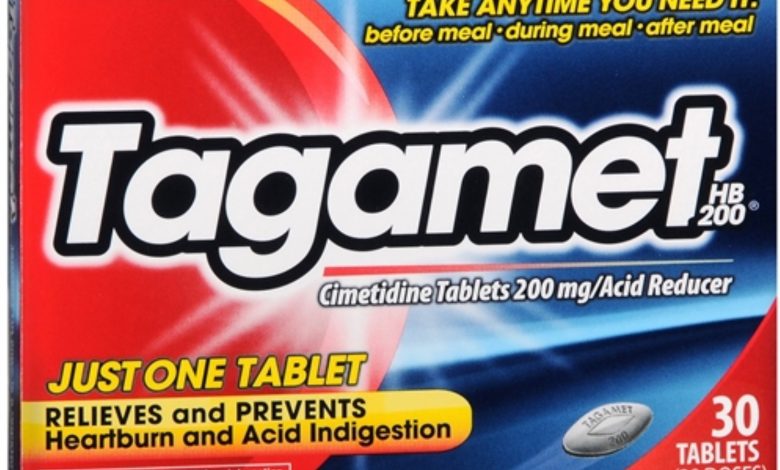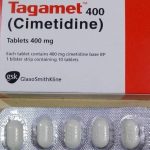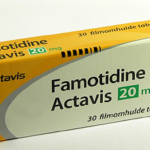Can I Take 2 Tagamet?

When one seeks medical attention, the first and foremost task handed to the physician is to assess the patient’s medical history and then prescribe an appropriate personalized medical regimen. Be it infectious diseases, chronic conditions, or metabolic disorders, prescription of medication is only the first step of proceedings. It is equally upon the patient, as much as it is upon the doctor and healthcare professionals examining him, to stick to his or her prescribed routine and get a follow-up check done on a regular basis.
The dose is the amount of drug taken at any one time. This can be expressed as the weight of the drug (e.g. 250 mg), the volume of drug solution (e.g. 10 mL, 2 drops), the number of dosage forms (e.g. 1 capsule, 1 suppository), or some other quantity (e.g. 2 puffs). The dosage regimen is the frequency at which the drug doses are given. Examples include 2.5 mL twice a day, one tablet three times a day, one injection every four weeks.
The total daily dose is calculated from the dose and the number of times per day the dose is taken while the optimal dosage is the dosage that gives the desired effect with minimum side effects. There are many factors taken into consideration when deciding the dose of a drug – including the age of the patient, weight, sex, ethnicity, liver and kidney function, and whether the patient smokes. Other medicines may also affect the drug dose. Adherence and compliance are pivotal in ensuring an improved health outcome for the patient especially if he is suffering from a chronic condition and needs prolonged medical attention.
What is Tagament?
Tagamet is a brand of cimetidine, a medication used to treat ulcers of the stomach and intestines and prevent them from coming back after they have healed. This medication is also used to treat certain stomach and throat (esophagus) problems caused by too much stomach acid (such as Zollinger-Ellison syndrome, erosive esophagitis) or a backward flow of stomach acid into the esophagus (acid reflux disease/GERD). Decreasing extra stomach acid can help relieve symptoms such as stomach pain, heartburn, difficulty swallowing, persistent cough, and trouble sleeping. It can also prevent serious acid damage to your digestive system (such as ulcers, and cancer of the esophagus).
Tagamet belongs to a class of drugs commonly called H2 blockers. It works by reducing the amount of acid in your stomach. This medication is also available without a prescription. It is used to treat occasional heartburn caused by too much acid in the stomach (also called acid indigestion or sour stomach). It is also used to prevent heartburn and acid indigestion caused by certain foods and beverages. If you are taking this medication for self-treatment, it is important to read the manufacturer’s package instructions carefully so you know when to consult your doctor or pharmacist.
How should I take Tagamet HB?
Tagamet HB is available both over-the-counter (OTC) and by prescription. The OTC strength is 200 mg, and the prescription strengths include 200 mg, 300 mg, 400 mg, and 800 mg.
OTC dosing:
Heartburn symptoms: The typical dose is 200 mg by mouth once a day.
Heartburn prevention: The typical dose is 200 mg by mouth once a day right before or 30 minutes before eating food or drinking beverages that cause heartburn.
Prescription dosing:
- Duodenal ulcer: The typical dose is 800 mg once a day at bedtime for 4 to 6 weeks. After the ulcer has healed, the dose usually goes down to 400 mg at bedtime.
- Gastric ulcer: The typical dose is 800 mg by mouth at bedtime or 300 mg four times a day (with meals and at bedtime).
- GERD: The typical dose is either 800 mg by mouth twice a day or 400 mg four times a day for 12 weeks.
- Hypersecretory conditions: The typical dose is 300 mg by mouth four times a day with meals and at bedtime.
Can I take 2 Tagamet?
The usual dosage for most patients is 400mg twice a day, with breakfast and at bedtime. For patients with duodenal or benign gastric ulceration, a single daily dose of 800mg at bedtime is recommended. Take Tagamet exactly as directed. Do not take more or less of it or take it more often than prescribed by your doctor. Do not take over-the-counter Tagamet for longer than 2 weeks unless your doctor tells you to. If symptoms of heartburn, acid indigestion, or sour stomach last longer than 2 weeks, stop taking cimetidine and call your doctor.
Cimetidine appears to be very safe in overdose, producing no symptoms even with massive overdoses. In case of overdose, call the poison control helpline at 1-800-222-1222. Information is also available online at https://www.poisonhelp.org/help. If the victim has collapsed, had a seizure, has trouble breathing, or can’t be awakened, immediately call emergency services at 911.





